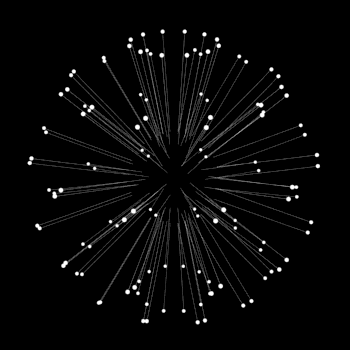Let #f(x)=((ln|x|)/x)^(1/x)# (I'm assuming you meant to use the natural logarithm here, though the approach used can be easily modified to use the common logarithm).
Then #ln(f(x))=1/x * ln((ln|x|)/x)=(ln(ln|x|)-ln(x))/x#, by properties of logarithms.
The limit #lim_{x->infty}ln(f(x))# is thus an #infty/infty# indeterminate form , to which L'Hopital's Rule can be applied.
Since #d/dx(ln(ln|x|)-ln(x))=1/(ln|x|)*1/x-1/x# and #d/dx(x)=1#, we can say that
#lim_{x->infty}ln(f(x))=lim_{x->infty}(1/(ln|x|)*1/x-1/x)/1=0/1=0#.
The continuity of the natural log function can now be used to say that this means #ln(lim_{x->infty}f(x))=0# so that #lim_{x->infty}f(x)=e^{0}=1#.


